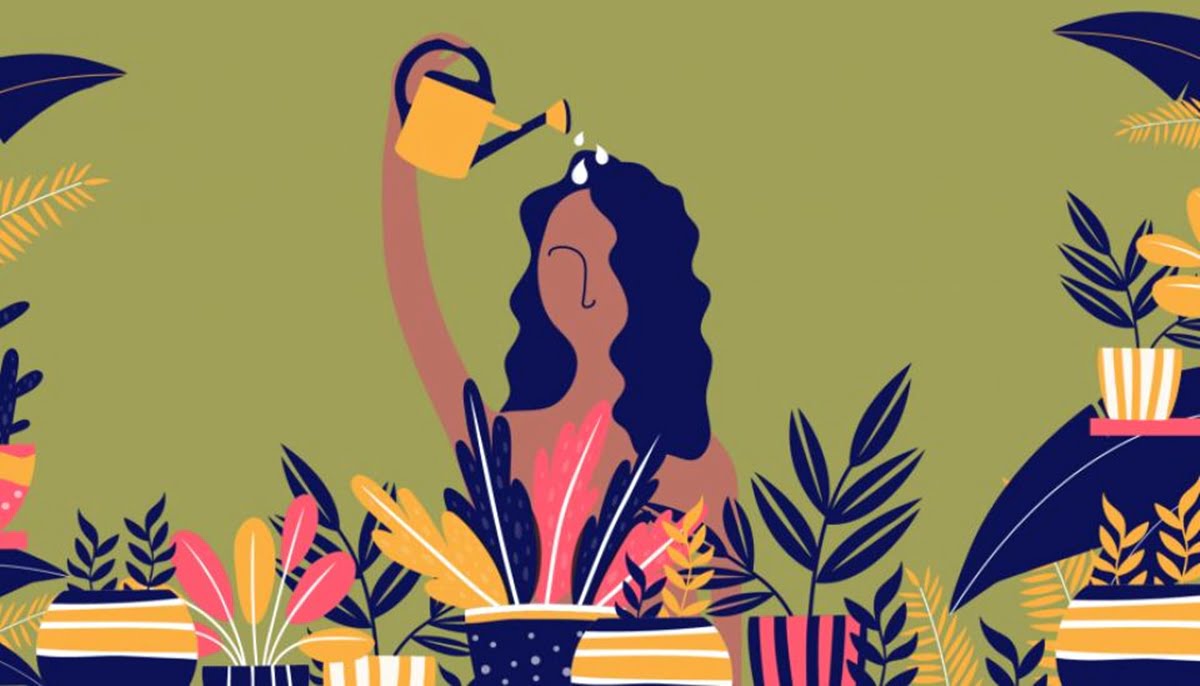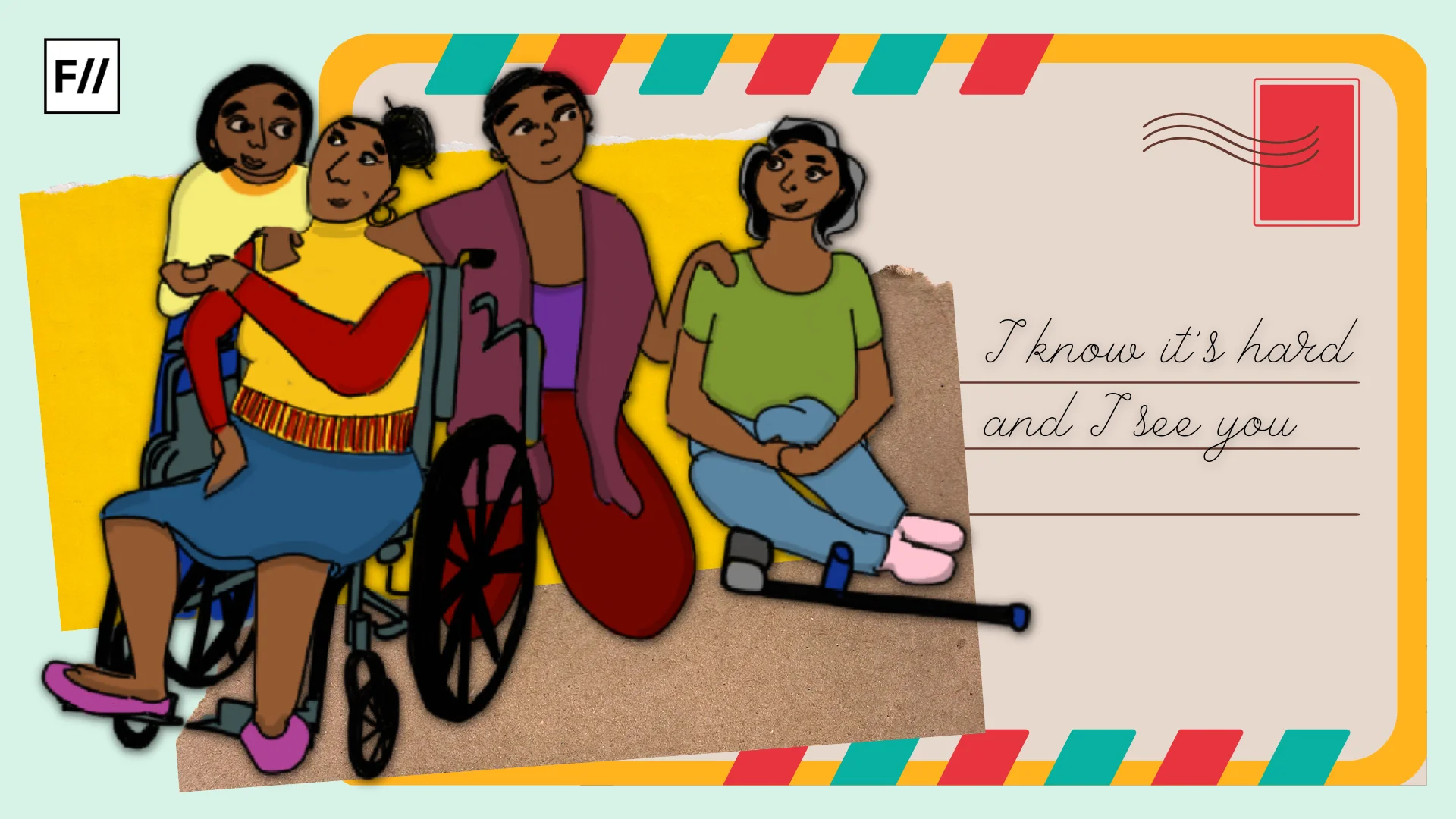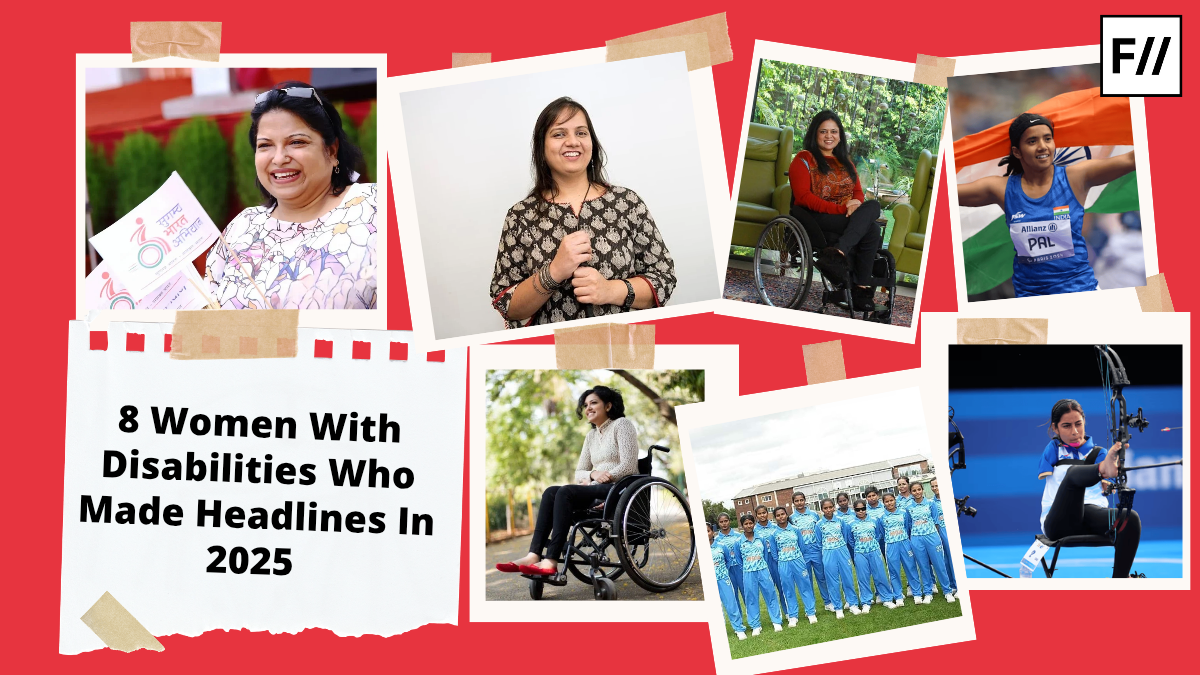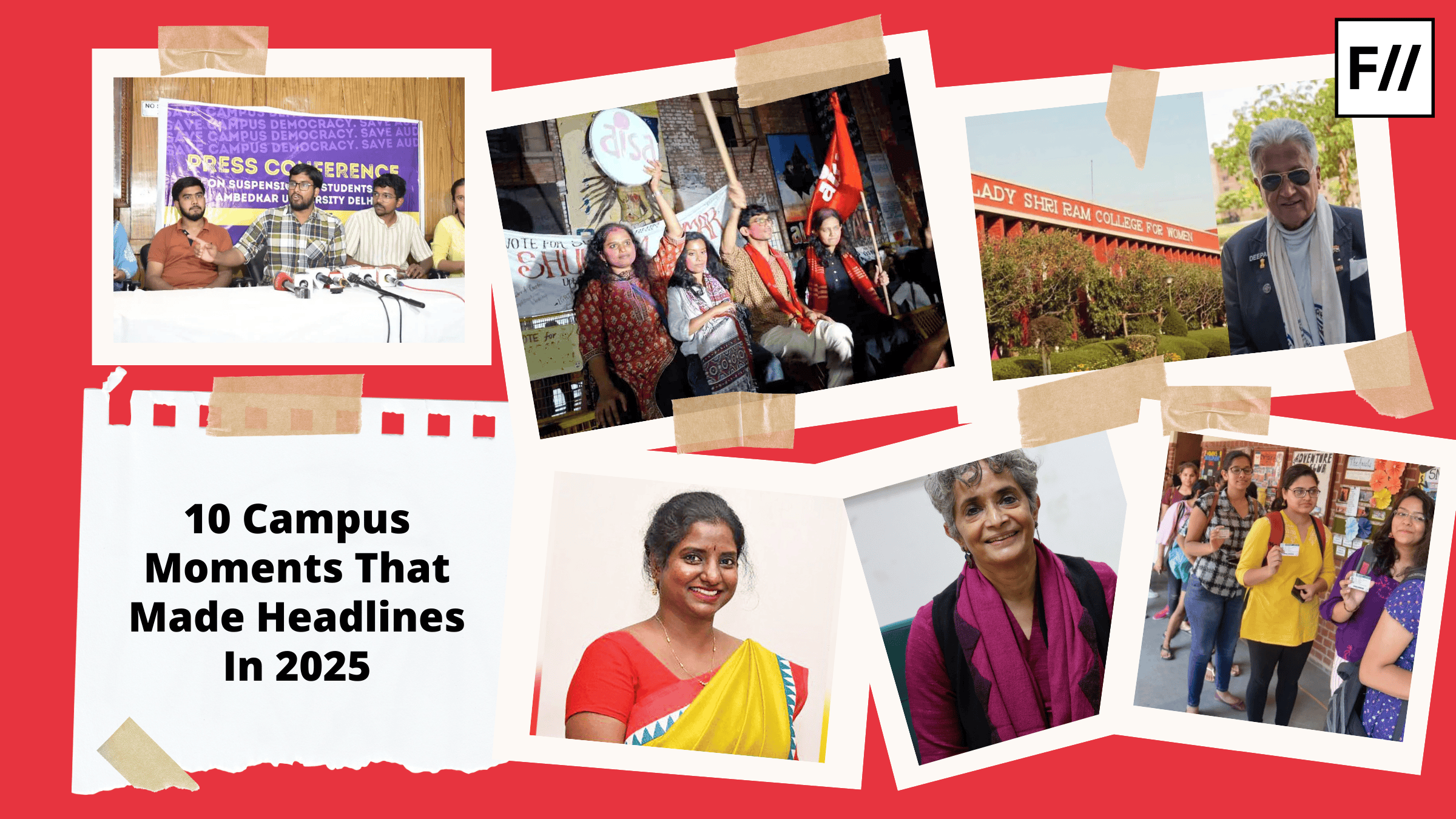As disabled people, we have been taught that not only is it okay to ask for help, but also if we are asked and offered help incessantly, if people assume that you are ‘helpless’ and then begin helping you and if they ask intrusive questions to you violating your personhood. We often find us beating ourselves up because when people ask us “But what happened to you?”, we are not told that it is okay to tell them that, “No, I do not owe you an explanation.”
The art of saying no, setting boundaries and assertion is something that we have not been conditioned into learning. With the assumption that the disabled folk will never live independently, our lives are believed to be open books in an able-bodied world.
The art of saying no, setting boundaries and assertion is something that we have not been conditioned into learning. With the assumption that the disabled folk will never live independently, our lives are believed to be open books in an able-bodied world. To an able-bodied individual, we will always need help no matter what we do or achieve. What we can do in such situations, is, like I always say, to take up space. It is important we reclaim, redefine and revive our disabled independence as a step towards setting our boundaries.
Also read: Taking Up Space: Redefining Dating & Beauty Standards As A Disabled Woman
Caregiving Relationships
Sometimes a disabled person might feel stuck in an unconventional or obligatory caregiving relationship with an abusive parent or partner. I found myself in one such sticky pudding with an emotionally abusive (ex) boyfriend. He and I once fought in public over something petty. I had to be understanding and polite, despite not agreeing to his argument, because I needed his help going home.
Often in relationships, we need to assert ourselves and our needs clearly while having a meaningful bond: This took me a long time to understand. Disabled folks are expected to stay silent in various instances, while on the other hand, we are patronised and cheered, for merely existing. I had to pretend to be alright with the principal revealing my medical history in front of the entire school. In fact, I had to pretend to be proud of it. I distinctly remember, they told me to stand up and wave at the entire audience, and I was humiliated but I did it, because that’s what I was conditioned to do as a disabled woman: be obedient and thankful that “at least someone’s celebrating me’’, even if it is in the most insulting and degrading way possible. I wasn’t wearing my spectacles at that time, but my friend who was sitting in the audience at the back told me that my disabilities were written on a large screen. Among them was written: “slurred speech“. It is worth noting here that at that point of time, I didn’t know that I was allowed to embrace my disability and feel empowered, put my needs and voice first.
People don’t expect us to have an opinion because they’ve infantilised us and drowned our voice, based on our identity, right from the beginning. Despite the unnecessary and tokenist appreciation of our existence, the likes of which we get to witness on International Day Of Disabled Persons, for instance, our needs for accessibility and resources are considered to be invalid, and we continue to be marginalised. At school, it was obligatory for one student to stay in class with me as I could not walk downstairs to go to assembly. This obligatory rule made teachers assign a random student to stay with me during this period. Such a practice made room for a lot of hostility, especially when a student did not want to stay back but the teacher would have to force her to.
I’ve rarely been scolded or punished in school. There was this unsaid rule that no one spoke about: the awkwardness of the teacher not being able to scold me because well, I was disabled. In turn, I had to be obedient so I wouldn’t let them down (or rather, wouldn’t give them an opportunity to scold me). Some students started to whisper and call me “teacher’s pet’’, thereby widening the otherness I felt. For a disabled child in school, alienation and otherness is basically a norm: we are always reminded of the fact that we’re different. I went to a school that had never tried to understand the perspective of someone who was disabled, someone who spoke differently or walked differently, simply because everyone in that school was able-bodied. The ableism in the air was such that no one around me was encouraged to look outside of their own realities and make themselves more aware and normalise the existence of different bodies and their realities.
Disability And Boundaries That Set Us Free
The boundaries that we, the disabled people, set do not bind us, in the true sense of the term. Instead, they can be freeing, and redefine independence and accessibility for us. We need to be firm and assertive, and set the tone with which we’d like to be addressed and treated. We need to set boundaries and expectations that we have in a relationship and make them as clear as possible. We need to reclaim and redefine our reality: A reality that has been distorted by able-bodied individuals who use wrong terminologies to address us, take away our agency and talk over us, all in the name of helping us.
There is a term known as benevolent ableism, which is an ableist insult disguised as a compliment. It is a clever tactic to distort disabled realities and to make folks of our community feel disempowered and small. Able-bodied folks pushing a certain inspiration porn narrative, labelling us as exceptional and courageous is also pertinent here.
It took me a lifetime to understand the sneaky and subtle power of benevolent ableism: I remember in class V when my tuition teacher would tell me about a girl who was the “prettiest of all” but whenever she stood up, she made everyone grimace and turn their face away because her gait was unusual and tedha (slanting). I would always get a very unpleasant feeling whenever my teacher narrated that story and it has taken me years to recognise how my teacher was trying to belittle me, because why else would you tell such a story to a young disabled girl? Today I ask: Why are we taught to perceive the Hunchback of Notre Dame as ugly and undesirable? Why are we oh so afraid of curvy and messy lines? Of bent backs and legs that walk differently?
Also read: Taking Up Space: My Speech Disability Is Both Personal & Political

Challenges In Setting Boundaries
I won’t lie: Setting boundaries with family members as a disabled woman was the most difficult. Parents of disabled children are evidently overprotective and might come off as intrusive even when they don’t mean to. I had to explicitly tell my mother to stop talking about my disability with others because it’s not her story or narrative to tell. I never openly told my mother about the dates I would go on, or the ableism and harassment I would face, because I didn’t want to worry her. When I turned 18, the topic of sexual relations arose. It was hardly a two-minute conversation where she proceeded to tell me that this is certainly not the age to engage in sexual relations and that I am, essentially “too weak” to have sex. I was mindful of her concern, because parenting a disabled child was never easy. Thereafter, we never spoke about men or physical relations.
I told mother about the myriad men who broke my heart and the various friendships that I had lost over the years. 2020 was significant for this mother-daughter duo as well as for me personally, when it comes to setting boundaries, reclaiming my personhood and redefining my disability.
I started opening up to mother emotionally only this year in 2020, when we began to spend a lot of time together in quarantine. I told her about the myriad men who broke my heart and the various friendships that I had lost over the years. 2020 was significant for this mother-daughter duo as well as for me personally, when it comes to setting boundaries, reclaiming my personhood and redefining my disability.
‘Taking Up Space’ is a column where the author writes about her experiences of navigating so-called mainstream spaces as a disabled womxn. Not an attempt to preach or inspire, she attempts to have conversations on taking up space within her own reality, in conversations and physical spaces such as classrooms, seminars, grocery stores and by extension, in an ableist society rendering disabled individuals as persons with no agency of their own.
Featured Image Source: GenderIt.org
About the author(s)
Anusha Misra prefers to be called nu, identifies as a disabled, queer woman. They are a disability justice author, curator and editor. They are the founder and Editor-in-chief of Revival Disability Magazine, a magazine on Disability, Sexuality and Intersectional Ableism. They firmly believe that Intersectionality gives disabled women the emotional skin to survive in the world and that vulnerability should be celebrated. According to them, the revolution would be incomplete without disabled joy and dissent.




